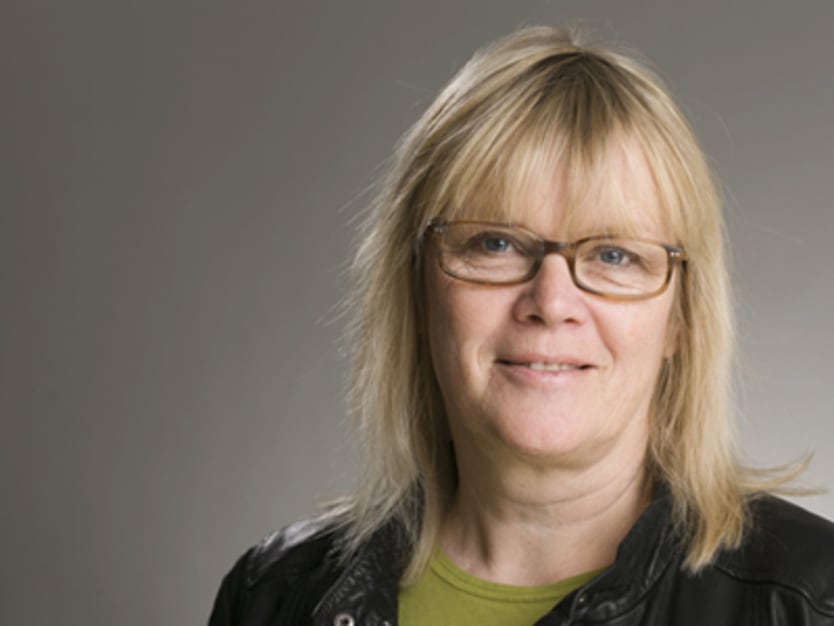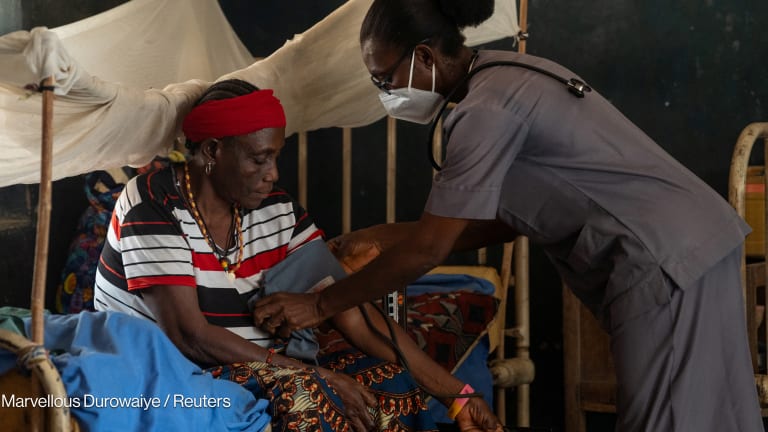
Traditional donors are increasingly aligning their development work with trade interests, raising concerns with most NGOs about civil society being taken out of the picture — but at least one aid group sees this trend as an opportunity.
In the case of Denmark, one of only five OECD-DAC donor countries that spend at least 0.7 percent of its gross national income on overseas aid, the government is trying to scale up the role of the private sector more in development cooperation, which in turn has led several humanitarian organizations to re-evaluate how they work with the country’s development ministry.
DanChurchAid for instance is looking at how it can take advantage of this policy to pursue more genuine partnerships, rather than just being a funding recipient of companies’ corporate social responsibility departments.
“We want to build partnerships with companies where there’s interest in pursuing sustainable, green growth, and how we can do that together … I think we have to look at opportunities instead of fears,” Birgitte Qvist Sørensen, DanChurchAid international director, told Devex. “But the fear is that you become so gung-ho for private sector that you leave out civil society… We have to be more holistic in our approach.”
Her argument voices the same concern of almost every other development organization: That the private sector can help, but they cannot alleviate poverty alone.
Sørensen gave the example of DanChurchAid’s partnership with Grundfos, a water pump manufacturing company in Denmark, to develop and deploy such devices in Africa — in a sustainable way.
“One thing is that if you have irrigation you can produce more, but that production can just go to waste because you don’t have access to markets, you don’t have roads. This is where I think we can do something — the government, the private sector and us,” she said, noting her organization’s expertise will be in working with civil society and farmers, while Grundfos has the technology, and governments can encourage donors and companies to invest in the infrastructure.
Added value
At the recent Global Green Growth Forum in Copenhagen, where the Danish government launched Opportunity Africa, its latest initiative aimed at creating better synergies between its foreign policy, development and trade approach, Sørensen noted several companies expressed their desire to follow the same path — engaging with civil society and making sure their business plans are green and sustainable.
The challenge though is getting companies understand NGOs’ “added value” and vice versa.
“I think they find it difficult to understand where we’re at. Sometimes, we also have difficulty understanding the private sector, thinking that they are only looking for profits. So i think right now the biggest problem is understanding each other, because we have different languages,” noted Sørensen.
This problem can also be taken literally. For instance, she explained, companies understand land rights or paying taxes, but once she starts discussing creating “enabling environments,” they start asking — “What are you talking about?”
To bridge the gap, Sørensen said NGOs need to be “bolder, sharper and better at documenting our results.”
And while there is value of partnering with the private sector, aid groups should not set aside its “watchdog” role, as there are still lots of room for advocacy work, for instance with land grabs and tax dodging still rampant in many developing countries they work with.
Meanwhile, Sørensen hopes donors such as her government would also push for more “genuine” partnerships.
“Our government is talking about new models for partnerships and so on, and I would hope that it’s not only redirect, but they actually mean it.”
Read more development aid news online, and subscribe to The Development Newswire to receive top international development headlines from the world’s leading donors, news sources and opinion leaders — emailed to you FREE every business day.








